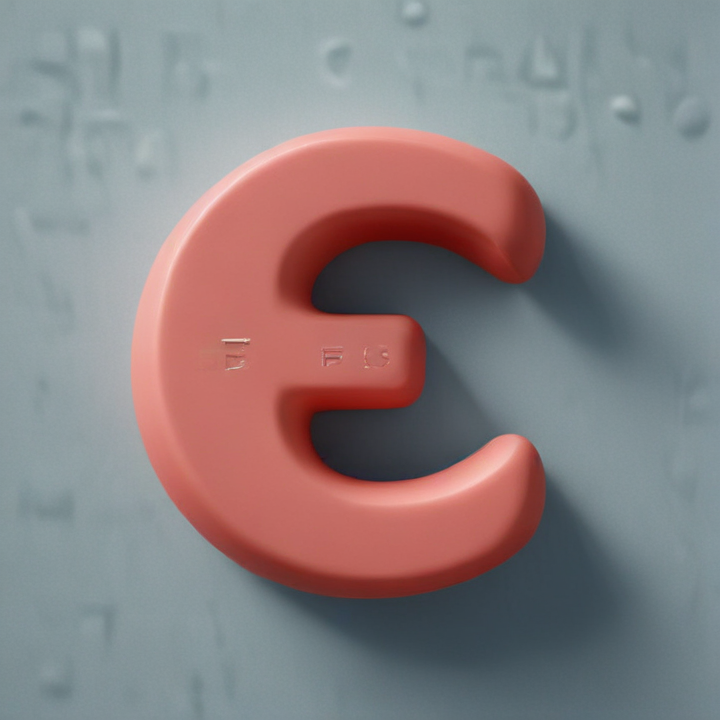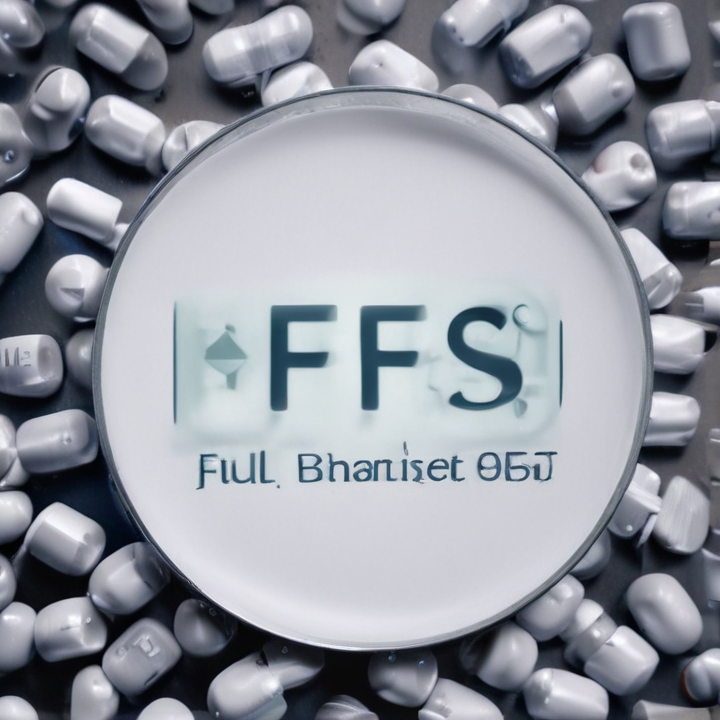List Technical Parameters of “ffs full form in pharma”
The term “FFS” in the pharmaceutical industry stands for “Form-Fill-Seal,” a technology used in the packaging of sterile and non-sterile products, including liquid and solid pharmaceuticals. The FFS process involves forming the package, filling it with the product, and then sealing it, all in one integrated and automated system.
Here are the key technical parameters of the FFS process in pharma:
1. Material Type:
– Plastics (e.g., polyethylene, polypropylene)
– Laminates
– Aluminum-based foils
2. Sterilization Method:
– Steam Sterilization
– Ethylene Oxide (EtO) Sterilization
– Radiation (Gamma, Electron Beam)
3. Machine Components:
– Forming Station
– Filling Station
– Sealing Station
– Cutting Station (for individual packs)
4. Control Systems:
– Programmable Logic Controllers (PLC)
– Human-Machine Interface (HMI)
– Sensors and Vision Systems
5. Filling Techniques:
– Volumetric Filling
– Gravimetric Filling
– Piston Filling
6. Sealing Methods:
– Heat Sealing
– Ultrasonic Sealing
– Pressure Sealing
7. Production Speed:
– Measured in units per minute (UPM)
– Dependent on product and package type
8. Environmental Controls:
– Clean Room Environment (Class 100 to Class 10,000)
– HEPA Filtration
– Temperature and Humidity Control
9. Validation and Regulatory Compliance:
– GMP Validation
– FDA and EMA Standards
– ISO 9001 and ISO 13485 for Quality Management
10. Packaging Formats:
– Sachets
– Pouches
– Bottles
– Blister Packs
11. Inspection Systems:
– Leak Detection
– Weight Verification
– Visual Inspection
12. Process Integration:
– In-line Printing (Date and Batch Codes)
– Labeling Systems
– Barcoding and Serialization
This concise breakdown covers crucial technical aspects of the FFS system, ensuring compliant, efficient, and high-quality pharmaceutical packaging.
List Product features of “ffs full form in pharma”
The “FFS” (Form-Fill-Seal) technology in the pharmaceutical industry offers a highly efficient and automated method for packaging pharmaceutical products. This method integrates the processes of forming the package, filling it with the product, and sealing it in a single operation. Here are some of the key features of FFS technology in pharma:
1. Automation: FFS technology is highly automated, reducing the need for manual labor and minimizing human error, thereby increasing efficiency and consistency in packaging.
2. Speed and Efficiency: The integration of forming, filling, and sealing in one continuous process significantly speeds up the packaging process, improving productivity.
3. Sterility: Designed to maintain high levels of sterility, FFS technology is suitable for aseptic packaging of pharmaceutical products, ensuring that the product remains uncontaminated.
4. Customization: The technology allows for versatile packaging designs and sizes, meeting diverse product requirements and marketing needs.
5. Cost-Effective: Reduces material wastage and labor costs due to its automated and streamlined nature, leading to lower overall packaging costs.
6. Consistency and Quality: Ensures uniformity and precision in packaging, enhancing the quality control of the packaged products.
7. Material Efficiency: Uses rollstock in the packaging process, which is more material-efficient and reduces packaging material usage compared to traditional methods.
8. Compliance and Safety: Adheres to stringent regulatory standards required in the pharmaceutical industry, ensuring the safe packaging of drugs and medical devices.
9. Environmental Impact: With less material wastage and improved efficiency, FFS technology can be more environmentally friendly compared to other packaging methods.
10. Operational Flexibility: Suitable for a wide range of products including liquids, powders, and solids, making it adaptable for different types of pharmaceutical products.
These features make FFS technology a preferred choice in the pharmaceutical sector for efficient, high-quality, and cost-effective packaging solutions.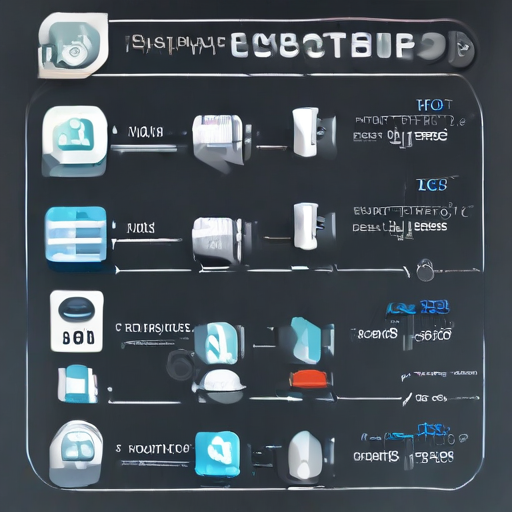
List Application of “ffs full form in pharma”
FFS, which stands for “Form Fill Seal,” is a highly automated process used extensively in the pharmaceutical industry for packaging various products. This technology allows for high-speed production while maintaining product integrity and safety. Here are some key applications of FFS in pharma:
1. Sterile Packaging: FFS technology is widely used for sterile packaging of injectables such as vials and syringes. It ensures aseptic conditions, reducing the risk of contamination.
2. Solid Dose Packaging: Tablets and capsules can be efficiently packaged using FFS machines. The process protects the solid dose forms from moisture and contaminants, enhancing product shelf life.
3. Liquid Packaging: FFS is ideal for packaging liquid pharmaceuticals like solutions, suspensions, and syrups. It enables precise dosing and seals the product securely to maintain sterility and stability.
4. Sachet Packaging: FFS is used to create single-dose sachets for powders, granules, and liquids. This is particularly useful for over-the-counter medications and consumer-friendly packaging.
5. Blister Packs: FFS machines are capable of producing blister packs, which are commonly used for packaging tablets and capsules. Blister packs offer protection from environmental factors and tampering.
6. Diagnostic Kits: Diagnostic reagents and kits often require packaging that prevents contamination and allows for extended shelf life. FFS provides a sterile and secure packaging solution for these products.
7. Topical Products: Ointments, creams, and gels can be packaged using FFS to ensure that they remain uncontaminated and effective over their shelf life.
8. Multi-Packs: FFS technology allows for the packaging of multi-dose packs, making it convenient for pharmaceuticals that need to be administered over a period of time.
By using FFS, pharmaceutical companies can achieve efficient, high-speed production and packaging while ensuring product safety, sterility, and integrity. This technology also supports compliance with stringent industry regulations and standards.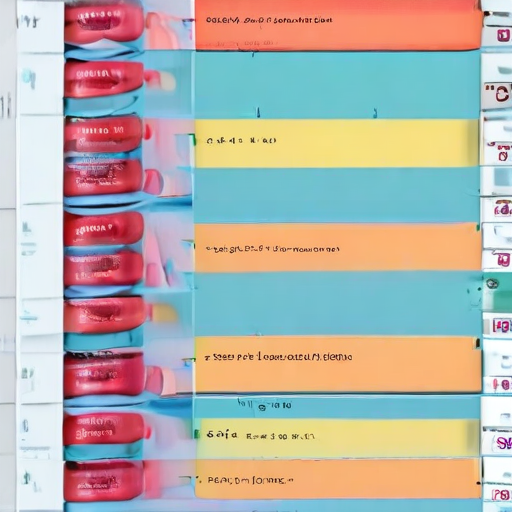
List Various Types of “ffs full form in pharma”
Certainly! In the pharmaceutical industry, “FFS” can refer to several different terms, each with its unique implications. Here are various types of “FFS” full forms in pharma:
1. Form-Fill-Seal (FFS):
– Description: This is a manufacturing process used in the pharmaceutical industry to form the package, fill it with the product, and seal it. It is commonly used for products such as liquids, creams, and powders.
– Applications: Commonly used for sterile packaging, unit dose packaging, and injectable products.
2. Further Food Safety (FFS):
– Description: Refers to additional measures or protocols followed to ensure the safety of food items, which often overlaps with pharmaceuticals, especially in nutraceuticals (products that are a combination of food and pharmaceuticals).
– Applications: Quality control and assurance, especially in facilities producing both food and nutritional supplements.
3. Fee-For-Service (FFS):
– Description: While more common in healthcare, this term can also appear in the pharmaceutical sector where services are billed individually.
– Applications: Pharmacies or facilities providing specific, billable pharmaceutical services.
4. Fast-Flow Synthesis (FFS):
– Description: A technique in medicinal chemistry or drug production involving rapid, continuous flow processes to enhance efficiency.
– Applications: Used in the manufacturing process to expedite chemical synthesis.
5. Ferric Ferrocyanide Spectrometry (FFS):
– Description: A specialized analytical method sometimes employed for the detection of specific compounds.
– Applications: Quality assurance and compound analysis in pharmaceutical research.
6. Fully Finished Stock (FFS):
– Description: Refers to pharmaceutical products that are completed and ready for distribution.
– Applications: Inventory management, logistics, and supply chain processes.
Each of these FFS full forms plays a distinct role in various aspects of the pharmaceutical industry, from manufacturing and quality control to financial models and supply chain management.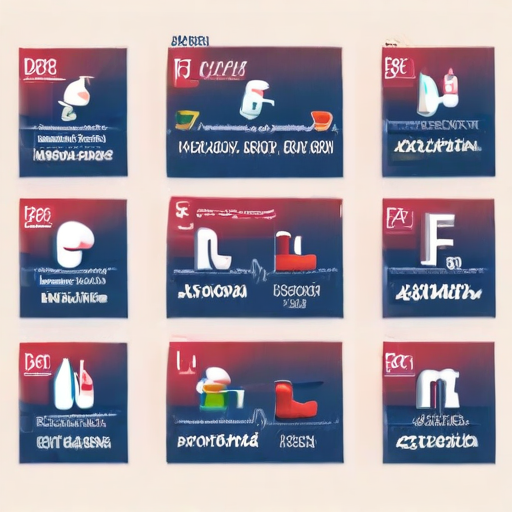
Custom Manufacturing Options for ffs full form in pharma
In the pharmaceutical industry, FFS stands for “Form-Fill-Seal,” a technology used for packaging that automates the process of forming, filling, and sealing containers. Custom manufacturing options for FFS technology offer numerous advantages tailored to the specific needs of pharmaceutical companies.
1. Material Selection: Custom manufacturing allows for the selection of a variety of materials such as plastic, aluminum, or laminated films, ensuring compatibility with the product’s chemical properties. This is crucial for maintaining the integrity and efficacy of the pharmaceutical product.
2. Container Design: Custom FFS options provide the flexibility to design containers in various shapes and sizes. This is particularly beneficial for creating user-friendly packaging, optimizing shelf space, and meeting branding requirements.
3. Dosage Accuracy: Precision filling mechanisms can be tailored to ensure accurate dosage, which is critical for patient safety and regulatory compliance. Custom nozzles and filling systems can be designed to handle different viscosity levels of pharmaceutical products.
4. Enhanced Sterility: Custom FFS systems can be equipped with features like sterile barriers or laminar flow technology to maintain a sterile environment during the packaging process, crucial for injectables and other sterile medications.
5. Speed and Scalability: Manufacturers can customize the speed of the FFS machinery to align with production demands, whether it’s for a small batch or large-scale production. This ensures flexibility and efficiency in the supply chain.
6. Integration with Quality Control: Advanced FFS machines can be integrated with automated quality control systems that inspect the seal integrity, fill levels, and packaging appearance in real-time, ensuring compliance with strict pharmaceutical standards.
7. Eco-Friendly Options: With growing environmental concerns, custom FFS manufacturing can incorporate eco-friendly materials and processes, aligning with sustainability goals and regulatory requirements.
Customizing FFS technology in pharmaceutical manufacturing not only enhances product safety and regulatory compliance but also improves operational efficiency and flexibility, ultimately contributing to better patient outcomes.
List Quality Control and The Manufacturing Process of “ffs full form in pharma”
Quality Control and Manufacturing Process of FFS (Form-Fill-Seal) in Pharma
1. Quality Control:
Quality control in the FFS process ensures that pharmaceutical products meet stringent safety and efficacy standards. Key aspects include:
– Raw Material Inspection: Verify raw materials for compliance with pharmaceutical standards.
– Environmental Monitoring: Control and monitor the cleanroom environment to avoid contamination.
– In-process Control: Regular inspections during manufacturing, such as verifying filling volume, seal integrity, and sterilization parameters.
– Sterilization Verification: Ensure that both the film and the product are properly sterilized.
– Final Product Testing: Conduct tests like sterility tests, pyrogen tests, and chemical analysis on the final product.
– Documentation and Compliance: Maintain detailed records and ensure compliance with regulatory standards like GMP (Good Manufacturing Practices).
2. Manufacturing Process:
The FFS process in pharmaceutical manufacturing is a continuous, automated operation that integrates forming, filling, and sealing into a single process. It generally includes the following steps:
– Material Feeding: Plastic granules or pre-formed films are fed into the machine.
– Forming: The film is formed into the desired container shape using heat and pressure.
– Filling: The formed containers are aseptically filled with the pharmaceutical product.
– Sealing: The containers are hermetically sealed to maintain sterility and prevent contamination.
– Cutting and Packaging: The sealed containers are cut into individual units and further packaged for distribution.
Critical Points:
– Cleanroom Environment: The entire process occurs within a controlled cleanroom to prevent contamination.
– Automation: The FFS process is highly automated, minimizing human contact and enhancing consistency.
– Inspection Systems: Vision systems and other automated inspection tools are often employed for quality assurance.
Conclusion:
The FFS process in pharma combines efficiency and environmental control to produce sterile pharmaceutical products. Strict adherence to quality control measures is essential to ensure product safety and compliance with regulatory standards.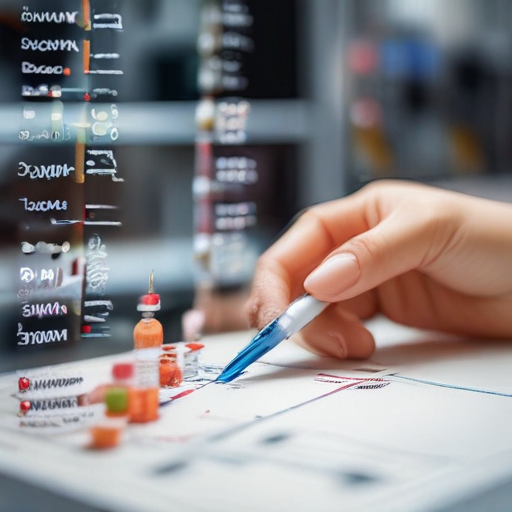
How to use “ffs full form in pharma”
In the pharmaceutical industry, “FFS” stands for “Form Fill Seal”. This term refers to an automated packaging process used to form, fill, and seal packages in a continuous operation. This technique is popular due to its efficiency and ability to maintain high hygiene standards, making it ideal for packaging sterile pharmaceutical products. Here’s how to use “FFS” in the context of pharmaceutical packaging:
1. Understanding the Process:
– *Form*: A plastic film, aluminum foil, or other packaging material is formed into a specific shape, typically a pouch or blister.
– *Fill*: The formed packaging is filled with the pharmaceutical product, which can be anything from tablets and capsules to liquids and powders.
– *Seal*: The filled packages are sealed to protect the contents from contamination, moisture, and other environmental factors.
2. Applications:
– *Sterile Products*: FFS is commonly used for sterile products like injectable drugs, IV solutions, and other medications requiring aseptic packaging.
– *Bulk Packaging*: Suitable for mass production, allowing large quantities of products to be packaged efficiently.
– *Customized Packaging*: Can be tailored to specific product requirements, such as child-resistant features or single-dose formats.
3. Benefits:
– *Efficiency*: Streamlines the packaging process, reducing labor and time.
– *Hygiene Control*: Minimizes human contact, thereby reducing the risk of contamination.
– *Cost-Effectiveness*: Reduces packaging material waste and operational costs.
Example Usage:
“In our pharmaceutical manufacturing facility, we employ state-of-the-art FFS technology to ensure that our sterile IV solutions are packaged with the highest levels of hygiene and efficiency. The automated FFS process allows us to maintain product integrity while optimizing production speed and reducing costs.”
In summary, FFS technology is integral to modern pharmaceutical packaging due to its ability to maintain sterile conditions, increase efficiency, and reduce operational costs.
List Properties and Terms of “ffs full form in pharma”
Sure! Here’s a concise overview of the properties and terms associated with “FFS” in the pharmaceutical industry:
FFS Full Form in Pharma
– FFS: Form-Fill-Seal
Properties of FFS in Pharma
1. Automation: Integrated system automates the process of forming containers, filling them with pharmaceutical products, and sealing them in one continuous workflow.
2. Sterility: Ensures a high level of sterility, crucial for injectable drugs and other sterile products.
3. Efficiency: Increases production speed and reduces labor costs by minimizing human intervention.
4. Flexibility: Can be used for a variety of packaging forms, including blisters, bottles, pouches, and vials.
5. Consistency: Enhances product consistency and quality by reducing the likelihood of human error.
6. Cost-effectiveness: Cost-saving on materials and labor by using roll stock plastic films and minimizing packaging waste.
7. Regulatory Compliance: Adheres to stringent regulatory standards required for pharmaceutical packaging.
Key Terms in FFS
– Primary Packaging: The material that first envelops the product and holds it, often the container that is directly in contact with the pharmaceutical product.
– Sterilization: The process of making an object free from bacteria or other living microorganisms, essential in FFS systems for sterile products.
– Blister Packs: A type of pre-formed plastic packaging used for small consumer goods, foods, and pharmaceuticals.
– Aseptic Processing: Maintaining sterility of products during production and packaging.
– Thermoform: A process that involves heating a plastic sheet to a pliable forming temperature, molding it to a specific shape, and trimming it to create a usable product.
– Film Roll: Continuous plastic film used in FFS machines that is formed into containers.
– Sealing: The process of making a package airtight, often involving heat-sealing methods.
Applications in Pharma
– Injectables: Packaging for sterile pharmaceutical injectables.
– Tablets and Capsules: Commonly packaged using blister packaging.
– Ophthalmic Solutions: Sterile packaging for eye drops.
– Creams and Ointments: Lami-tube or sachet packaging.
Through the integration of these properties and adherence to specific terms, FFS systems offer significant advantages in the pharmaceutical packaging industry, balancing efficiency, quality, and cost-effectiveness.
List The Evolution history of “ffs full form in pharma”
The term “FFS” in the pharmaceutical industry primarily stands for “Form-Fill-Seal,” a technology used for aseptic processing of liquid and semi-solid products. Here’s a concise evolution history of FFS in pharma:
1970s: Introduction and Adoption
– Inception: FFS technology was first developed for the food packaging industry.
– Adoption in Pharma: Recognizing the potential for sterile packaging, the pharmaceutical industry began adopting FFS for its efficiency and contamination control.
1980s: Technological Enhancements
– Materials and Machinery: Advances in plastic materials and improvements in FFS machinery made it more feasible and reliable for pharmaceutical applications.
– Regulations: Regulatory bodies started creating guidelines for the use of FFS in sterile pharmaceutical packaging, ensuring high-quality standards.
1990s: Expansion and Diversification
– Broader Applications: FFS technology expanded to more pharmaceutical products, including IV solutions, ophthalmic products, and unit-dose medications.
– Quality Control: Enhanced focus on quality control measures and integration of automation led to higher adoption rates in the industry.
2000s: Integration with Advanced Technologies
– Automation and Robotics: Integration with advanced robotics and automation technologies improved the accuracy and efficiency of FFS processes.
– Innovation in Materials: Introduction of advanced polymer materials increased the durability and sterility of FFS packaging.
2010s: Global Standardization and Environmental Focus
– Global Standards: Establishment of global standards and protocols for FFS technology by organizations like the FDA and WHO.
– Sustainability: Increased focus on environmentally friendly materials and processes, promoting sustainability in packaging.
2020s: Digital Transformation and Future Trends
– Smart Manufacturing: Incorporation of Industry 4.0 technologies such as IoT, AI, and machine learning to optimize the FFS process.
– Personalized Medicine: Adoption of FFS in the production and packaging of personalized medicines, reflecting broader trends towards patient-specific treatments.
Overall, FFS technology has evolved significantly, transforming from a simple packaging method into an advanced, highly regulated process integral to modern pharmaceutical manufacturing.
How to Select a Reliable ffs full form in pharma
Selecting a reliable FFS (Fill-Finish System) in pharma is crucial for ensuring product safety, sterility, and compliance with regulations. Here are key considerations to help make an informed choice:
1. Compliance with Regulations: Ensure the FFS system complies with Good Manufacturing Practices (GMP) and regulatory standards like FDA, EMA, or other relevant authorities. This guarantees the system meets stringent industry requirements for safety and quality.
2. Technology and Features: Evaluate the technology used in the FFS system. Look for advanced features like automated filling, aseptic processing, and in-line sterilization. These features enhance precision and reduce contamination risks.
3. Scalability: Choose a system that can easily scale with your production needs. This ensures that as your demand grows, the system can handle increased volumes without compromising efficiency or quality.
4. Flexibility: The FFS system should be versatile enough to handle various product types, including liquids, powders, and suspensions, and accommodate different packaging formats like vials, ampoules, and syringes.
5. Vendor Reputation: Research the vendor’s reputation for reliability, customer service, and support. Check customer reviews, case studies, and ask for references. A reliable vendor should offer comprehensive training, maintenance, and technical support.
6. Quality Control: Assess the system’s ability to maintain product integrity and consistency. Features like in-line quality control checks and real-time monitoring can help maintain high standards.
7. Cost-effectiveness: Consider the total cost of ownership, including initial investment, maintenance, and operational costs. While higher-quality systems may have a higher upfront cost, they can offer better long-term value through increased reliability and lower downtime.
By carefully considering these factors, you can select a reliable FFS system that ensures high-quality pharmaceutical production.
List “ffs full form in pharma” FAQ
FAQ: FFS Full Form in Pharma
#### 1. What does FFS stand for in the pharmaceutical industry?
FFS stands for “Form-Fill-Seal,” a common manufacturing process in the pharmaceutical industry.
#### 2. What is Form-Fill-Seal (FFS)?
Form-Fill-Seal (FFS) is an automated packaging process that involves forming, filling, and sealing packages in a single machine operation.
#### 3. How does the FFS process work?
In the FFS process, packaging material is first formed into a package shape. The product is then filled into these freshly formed packages, which are subsequently sealed to create the final product package.
#### 4. What types of packaging can FFS be used for?
FFS can be used for a variety of packaging types including pouches, bottles, blister packs, and more.
#### 5. What are the advantages of FFS in the pharma industry?
– Efficiency: Automates and streamlines the packaging process.
– Hygiene: Reduces human contact, thereby limiting the potential for contamination.
– Consistency: Ensures uniformity in packaging.
#### 6. Are there different types of FFS machines?
Yes, FFS machines can be categorized into vertical FFS (VFFS) and horizontal FFS (HFFS) depending on the orientation of the packaging process.
#### 7. Is FFS technology cost-effective?
Over the long term, FFS technology can be cost-effective due to reduced labor costs and increased production speed.
#### 8. Can FFS be used for liquid pharmaceuticals?
Yes, FFS technology can be adapted for both liquid and solid pharmaceutical products.
#### 9. Are FFS systems customizable?
FFS systems can be highly customizable to meet the specific needs of different pharmaceutical products and packaging requirements.
#### 10. Are there any limitations to FFS?
While highly efficient, the initial setup cost for FFS machinery can be high, and the process may not be suitable for all types of products.
#### 11. What industries apart from pharma use FFS?
FFS is widely used in food and beverage, cosmetics, and chemical industries.
Understanding the role and benefits of FFS in the pharmaceutical industry can help ensure better packaging solutions and improve overall workflow efficiency.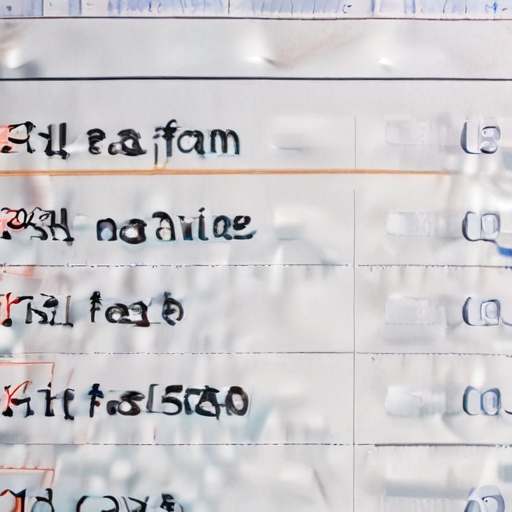
Top 10 FAQ with answer about ffs full form in pharma for Buyer Sourcing from China
Sure, here are the top 10 FAQs about FFS (Form-Fill-Seal) in pharma for buyer sourcing from China:
1. What is Form-Fill-Seal (FFS) in the pharmaceutical industry?
– FFS refers to a manufacturing process that automates the creation, filling, and sealing of plastic bags or containers. It’s widely used for sterile pharmaceutical products.
2. Why is FFS technology preferred in pharma packaging?
– FFS technology ensures high sterility and precision, minimizes contamination, and improves efficiency, making it ideal for both liquid and solid pharmaceutical packaging.
3. How reliable is the quality of FFS machines sourced from China?
– Many reputable Chinese manufacturers adhere to international standards like ISO and GMP. Always vet suppliers for certifications and customer reviews.
4. What should I look for in a Chinese FFS machine supplier?
– Key considerations include certification (ISO, CE), customer testimonials, experience in the pharma industry, and after-sales support.
5. What are the cost implications of sourcing FFS machines from China?
– Generally, sourcing from China can be cost-effective due to lower manufacturing costs, but factor in shipping, customs, and potential import duties.
6. Can Chinese FFS machines handle different pharmaceutical forms?
– Yes, many Chinese manufacturers offer versatile FFS machines capable of handling liquids, gels, powders, and tablets.
7. What about the after-sales service and support?
– Reliable suppliers offer comprehensive after-sales support, including installation, training, and maintenance services. Confirm these details beforehand.
8. Are spare parts for Chinese FFS machines readily available?
– Leading manufacturers ensure the availability of spare parts. Verify the specifics of spare parts logistics before purchasing.
9. How does the lead time of Chinese FFS machines compare to other countries?
– Production and delivery times are often competitive, but they depend on the manufacturer’s capacity and current demand. Always check the estimated lead time.
10. Are there any regulatory concerns when importing FFS machines from China?
– Ensure the machines comply with local regulatory standards and obtain necessary import licenses. Working with a customs broker can simplify the process.
By considering these FAQs and answers, buyers can make more informed decisions when sourcing FFS machines from China for pharmaceutical applications.



